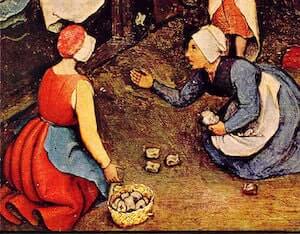Despite my wife being fluent in French, I have learned very little of that language in our married life. Of course, there are many French [phrases that have made their way into fairly common usage in English. For example, here are three you might use or hear in a restaurant.
"À la carte" means that each dish on the menu is priced individually, rather than being part of a set meal. It literally translates to "according to the card"—referring to the menu card. While the correct French spelling includes the accent (À la carte), it’s commonly written without it in English. (We are lazy about that stuff.) The term describes a dining style where meals are selected and paid for item by item, unlike a table d’hôte arrangement, which offers a fixed-price menu for a set combination of courses.
Though the exact date of its first use in French is unclear, à la carte entered the English language in the early 19th century.
The phrase "à la mode" is French for "in the fashion" or "fashionable", and originally had nothing to do with dessert topped by ice cream.
In classical French cuisine, it describes dishes prepared in a particular style, like boeuf à la mode, a pot roast cooked with wine and herbs.
The term was anglicised as a noun – alamode, which was a form of glossy black silk, and it appeared in a 1676 edition of The London Gazette:
But Americans are familiar with this phrase as meaning "with ice cream." That twist appears to have emerged in the late 19th century. One of the earliest documented uses of à la mode to mean served with ice cream was in an 1895 article from the Chicago Daily Tribune, describing a pie topped with ice cream. From there, the term caught on and became a staple of American diner lingo.
When someone says a dish is "cordon bleu", they’re not just talking about chicken stuffed with ham and cheese. They’re basically saying it’s top-tier, five-star, “kiss-the-chef” level stuff.
The phrase is French for “blue ribbon”, which back in the days of the Bourbon kings wasn’t just something you won at a school science fair—it was literally the highest rank of chivalry. By 1727, English speakers had picked it up to mean elite quality — especially when it came to chefs.
Fast forward to 1827, when a cookbook titled Le Cordon bleu ou nouvelle cuisinière bourgeoise hit Paris, dishing out top-notch recipes. Then in 1895, a newsletter called La Cuisinière Cordon-bleu began sharing pro tips from real chefs. And in 1896, Cordon Bleu cooking classes kicked off in Paris’s fancy Palais Royal, training folks to sauté like royalty.
In short: if someone says your cooking is cordon bleu, you can proudly toss your spatula in the air and take a bow.










